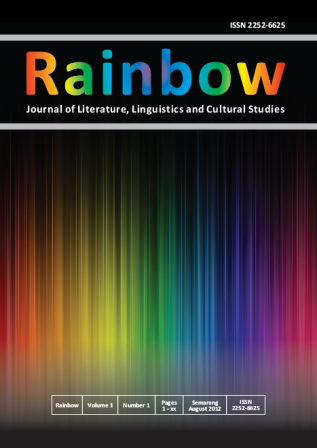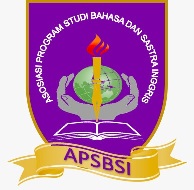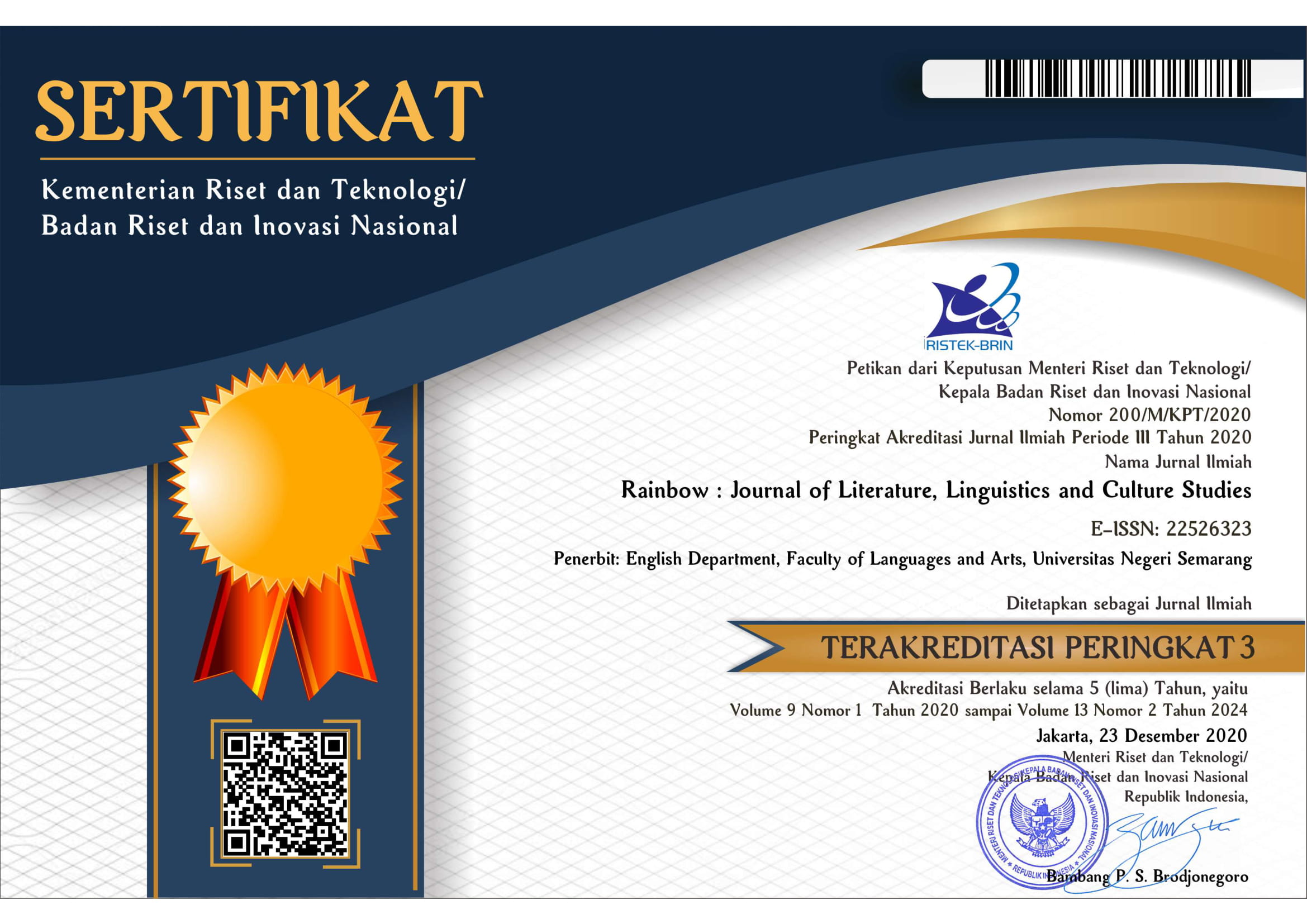HUMANIZING ANIMAL AS A REFLECTION OF NATURALISM IN ACK LONDON’S NOVEL THE CALL OF THE WILD
Abstract
The purposes of this article are to analyze some concepts of naturalism which are used to describe the portrayal of Buck (dog) in Jack London’s novel The Call of the Wild and to understand how London uses the attribution of human qualities in humanizing the animal protagonist Buck. The method of this study is descriptive qualitative with naturalistic approach. The data are in the form of words, phrases, sentences, and paragraphs. As the results, there are two important findings. First, some naturalism concepts such as the concept of survival of the fittest, determinism, and violence are shown in details. The forces of heredity and environment toward Buck’s life journey are clearly discussed well. Second, the dog-protagonist, Buck, is attributed with characteristics such as love, ambition, and revenge, traits that usually describe humans. London as the author makes a strong case that the ingredients of human morality such as sympathy, love sharing, rules, and hatred are very much evident in other animal. It is emphasized again and again, The Call of the Wild exposes the essence of human’s life. From depiction of Buck, London has successfully placed the readers in the animal’s point of view. For conclusion, whether human morality could never have developed without foundation of fellow feeling that every species shares with other animals, and consider it as a reflection of the way of human thinking toward natural environment and the existence of other creatures.
References
Binford, Paul. 2004. American Realism: Literature or Social Criticism? Journal of Nanzan Junior College Vol. 32. 61-74.
Campbell, Donna M. 2010. Naturalism in American Literature, Literary Movements. Dept. of English, Washington State University. Online. Available at http://public.wsu.edu/~campbelld/amlit/natural.htm Retrieved on May 6, 2013.
Darwin's Theory of Evolution - A Theory in Crisis. All About Science. Online. Available at http://www.darwins-theory-of-evolution.com/ Retrieved on May 6, 2013.
High, Peter B. 1986. An Outline of American Literature. New York: Longman.
London, Jack. 1903. The Call of the Wild. New York: Grosset & Dunlap Publishers.
Nauert, R. (2010). Why Do We Anthropomorphize? Psych Central. Online. Available at http://psychcentral.com/news/2010/03/01/why-do-we-anthropomorphize/11766.html Retrieved on May 17, 2013.
Revolution and Other Essays: The Other Animals. The Jack London Online Collection. Online. Available at http://london.sonoma.edu/Writings/Revolution/animals.html Retrieved on May 6, 2013.
Walcutt, Charles C. 1956. American Literary Naturalism: A Divided Stream. Online. Available at http://books.google.co.id/books?id=cXJi6gHqJEoC&printsec=frontcover&hl=id#v=onepage&q&f=false Retrieved on May 4, 2013.
Williams, Kathryn. (nd.) Why Do We Treat Pets Like People? Divine Caroline. Online. Available at http://www.divinecaroline.com/life-etc/friends-family/why-do-we-treat-pets-people Retrieved on May 17, 2013.
Williams, Raymond. 1976. Keywords: A Vocabulary of Culture and Society. London: Fontana.







